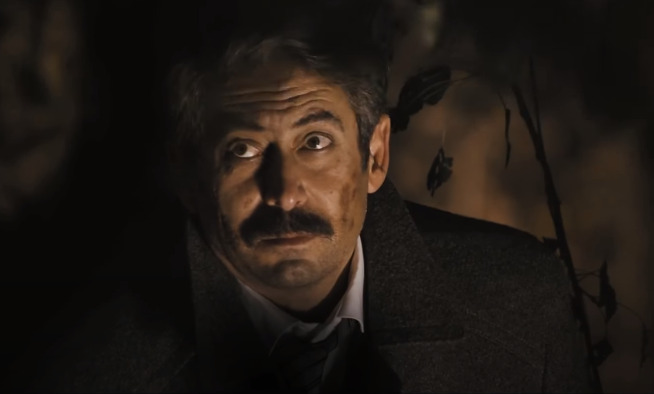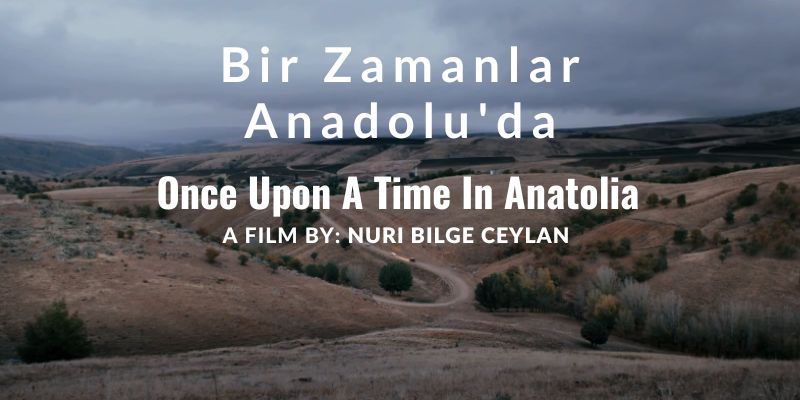Faith, Reason and Existentialism in Nuri Bilge Celyan’s Once Upon a Time in Anatolia
Nuri Bilge Ceylan is slowly becoming one of my favorite directors, and although his technical craftsmanship as a director is one reason, the philosophical ideas he highlights are probably the biggest reason for my love for his films. I recently watched his 2011 film, “Once Upon a Time in Anatolia,” and while watching it I found myself thinking about a lot of things. The film sheds light on many existential questions, at times through nihilist conversations between two people, or at times just by making us familiar with the inner insecurities that people hide in their hearts. And one of the most obvious themes is faith vs. reason, or perhaps faith and doubt.
Now, the two main ways the film touches upon these said topics are either through dialogue directly discussing them or more subtly by making us more familiar with the characters and how they respond to the discovery of certain things.
THE PAIN OF EXISTENCE AND THE MEANINGLESSNESS OF LIFE
Talking about existentialism in the film, let me start by quoting a poem from the film.
“Still, the years will pass and not a trace will remain of me.
Darkness and cold will engulf my weary soul.”
This poem sums up the themes of the film very beautifully. There is a constant mood of hopelessness in the film, from the dark atmosphere to the slow pacing, everything adds up to the theme of life almost being unbearable, and the fact that (without spoiling much) some parts of the plot remain unsolved, much like many philosophical questions of existence, again helps highlight the meaninglessness of our existence. We sit through almost 2.5 hours of a slow-burn film just to reach an ending to which we have to “give” meaning ourselves. We are the ones that are supposed to come up with what could have happened, much like how it’s us ourselves that give meaning to our meaningless lives. So, ultimately, what is existence? Do our lives have a purpose? Or are we just bodies floating in an ocean of nonsense? We can only find mental satisfaction for these troubling questions by giving them our own meaning, and even then, the worries will haunt us.
Another very powerful scene in the film talks about how Prophet Solomon, despite living 150 years, died at the end, showing the extremely hopeless mindset of nihilism.
FAITH AND REASON
One of the most apparent themes of the film is the conflict between absolute faith and absolute reason. And, I think more than just the conflict, it might be about the co-existence of both inside the heart and mind of the same person. There may be spoilers ahead, but I don’t think they will change your viewing experience much. Go ahead at your own risk.

There are two characters in the film that I would like to discuss. One is the doctor named Cemal (Muhammet Uzuner), and the other is the prosecutor, Nusret (Taner Birsel). Each of them represents two different sorts of mindsets. Let’s first start with the doctor.
Doctor Cemal is, as the name makes it obvious, a doctor, hence a man of science, a man of reason, and hence a skeptic. Now he, of course, represents doubt. Perhaps even in the film he is not much of a believer, as at one point when a man talks about the will of God, he remains silent and does not say much. Maybe this silence also represents the lack of freedom of speech people have in areas where religion is more dominant (please don’t think it’s some attack on religion as I myself am a believer).
Moving on, let’s talk about the prosecutor a bit so that we can finally talk about them both and the constant conflict between them. The prosecutor, Nusret, represents those who believe in God, and their faith is their only ray of hope in this cold and dark world. Hence, they cling onto it as tightly as they can, and when doubt visits them, they turn a blind eye to it, or at least they pretend to do so.
Check out our more Turkish Movie reviews here
Now, if you’ve watched the film, you know Nusret tells a story to Cemal. The story is about the wife of a friend of Nusret’s. He tells Cemal that the death of his friend’s wife was the strangest death he had ever seen. He tells Cemal how she predicted her own death (actually something we do hear very commonly), and she died at the very instance she said she would, i.e., after giving birth to her first kid. We often hear such stories, and I won’t lie, I have seen such things happen in my life, even stranger things, things that can only be called miracles, but after he tells the story to the doctor, the doctor starts questioning him things like if they ever did her autopsy. Nusret says they never did so as there was no need for it. The doctors at the time ruled her death as a heart attack. But later on, the doctor, Cemal, asks some very convincing questions. Those questions and the impact they have on Nusret are a powerful representation of how a believer feels when encountered with doubt. We see Nusret not believing the doctor, we see him ignoring the doctor’s questions, as the majority of people with a religious background do so, but Nusret is almost shown as a character whom one feels pity for, so maybe it could also represent the current state of religious people, as they once contributed to things like philosophy, but now they run away from it, so Nusret can be a representation of modern day religious thought, or more specifically, the lack of thought.
To summarize, the film tells us how faith and doubt work, and I think, as there are some characters in the film that are wise yet believers, it can represent the fact that both faith and reason can, or in fact, need to coexist. Perhaps they complement each other when understood well.


